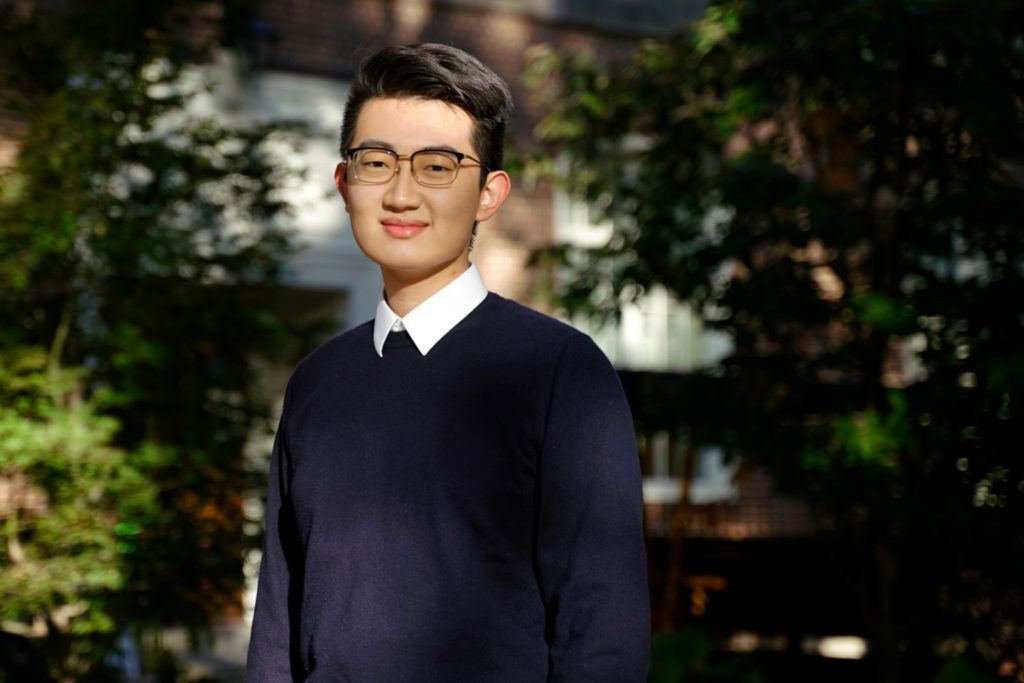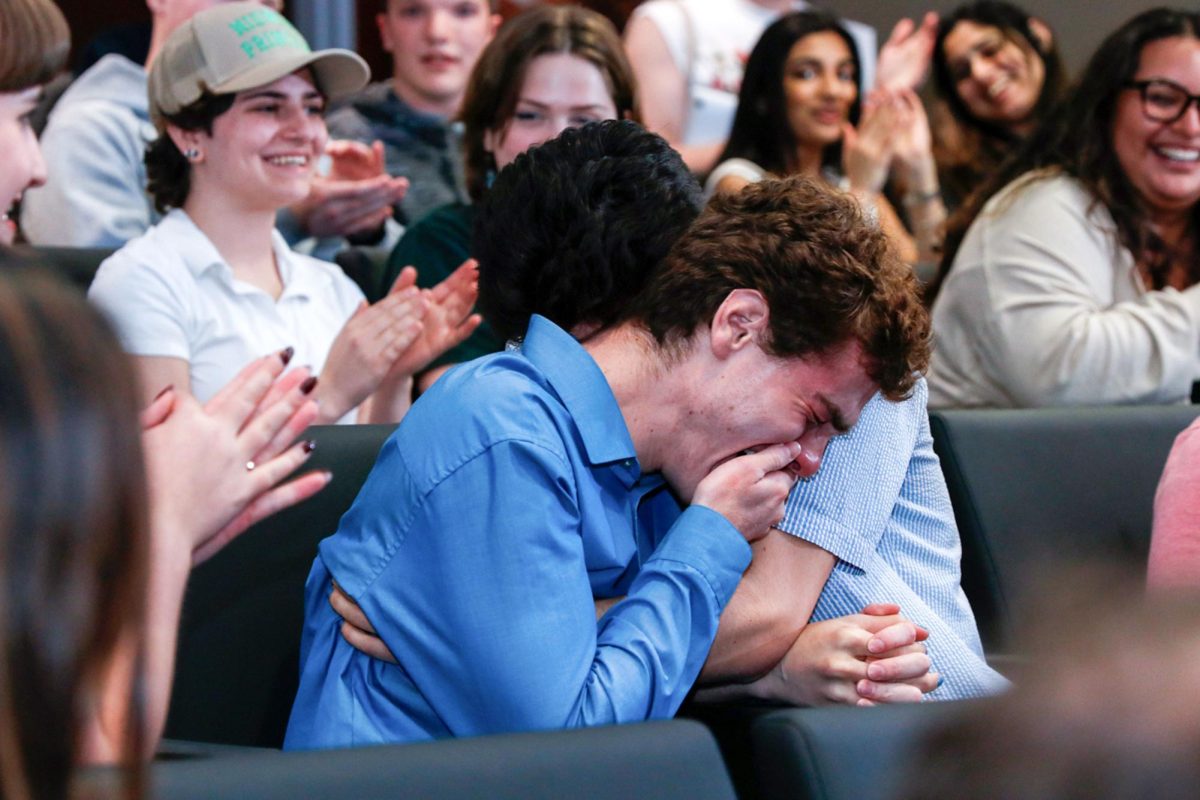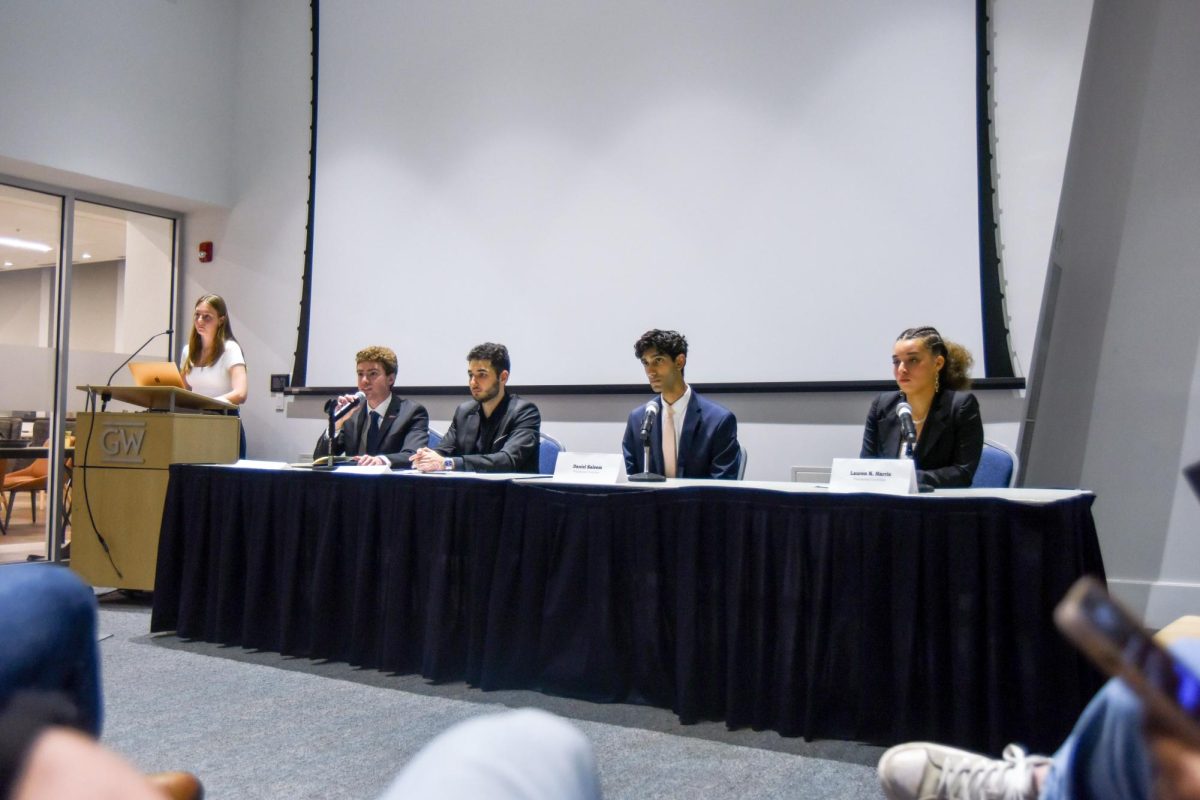Updated: Nov. 1, 2021 at 4:05 p.m.
The Student Association approved 17 percent of student organizations’ requested funding for the remainder of the academic year, according to SA financial documents.
SA leaders granted undergraduate student organizations about $440,000 to use beginning Nov. 1 after the groups submitted $2.4 million in funding requests, according to an SA budget report released last week. Student organization leaders said they are now forced to scale back their events or find other methods of fundraising, like soliciting alumni donations, to support their organizations because of the shortage of allocations.
SA Sen. Yan Xu, ESIA-U and the chair of the finance committee, said the University cut the SA’s annual budget down to $1.6 million this academic year, which Xu said is about $100,000 less than previous years. The SA’s budget, which is determined by a credit hour fee with some additional support from the University, is largely tied to GW’s enrollment, which has dropped steadily over the past few years.
“It’s still way less than what student orgs actually want,” Xu said in an interview. “They want 5 million minimum every year. And there’s absolutely no way that we can fund them.”
The SA had previously allocated $430,850 to graduate student organizations for the entire academic year in accordance with the SA’s bylaws. The bylaws permit the SA’s finance committee to distribute about 70 percent of the remaining $1.2 million to undergraduate student organizations and graduate student organizations that don’t have an umbrella organization in their school to request funding from.
SA leaders have earmarked a total of $766,000 for undergraduate student organizations this academic year, including $430,000 in previously approved requests.
Xu said 244 organizations submitted requests compared to 224 in the previous funding round. Organizations are now requesting more money since the University has returned to in-person operations, he said.
Xu said only 11 student organizations received their full request as the SA struggled to meet group’s needs due to a lack of funding.
He said organizations had the opportunity to appeal their allocation after funding was disbursed, and members can apply for co-sponsorship requests at any time. Groups should find other sources of funding, like alumni donors and academic departments, if they were dissatisfied, Xu said.
“They can’t rely on the SA to fully fund everything, which is unrealistic based on their applications, based on the number that everyone wanted,” Xu said. “They need to look into other sources of revenue, and there are a lot of sources of revenue available.”
Anne Graham, the University’s director of student involvement and leadership, said the SA receives funding from a $3 fee per credit hour GW charges students each semester, which is capped at $45 per student, and a supplemental University donation of 50 cents per credit hour.
She said GW had historically provided financial support to certain student organizations, including Program Board and the Residence Hall Association, that “partner closely” with the Division for Student Affairs to provide community-wide programming, but officials cut back the funding this year as a result of pandemic-related budget mitigation efforts.
“This fiscal year, budget cuts and reappropriation of some funding to prioritize health and safety as we continue to respond to COVID has prevented the Division for Student Affairs from financially supporting these student organizations to the same extent that we have in past years,” Graham said.
The SA finance committee partially funded or fully denied many of student organizations’ line-item budget requests, according to the SA budget book. Student leaders said they wished members of the SA’s finance committee had communicated with them about why certain requests were “neglected” and enable student leaders to explain how the money would fund their speaker events, merchandise and travel expenses.
The GW Program Board received $15,000 – the highest amount given to any student organization – followed by the GW South Asian Society, which received $8,150, according to the report.
Eight graduate student organizations including the Black Public Health Student Association and the International Affairs Review were not granted funding because the finance committee does not have jurisdiction to handle their requests, per the SA’s bylaws.
Graduate student organizations that have an umbrella organization for their school receive funding directly from the umbrella organization, according to the SA’s bylaws. For schools that don’t have umbrella organizations, the SA’s finance committee is responsible for allocating funding.
Undergraduate student organizations that received no funding includes the Multicultural Greek council, which requested $1,500 and the Kappa Sigma Fraternity, which requested $11,730.
Sophomore Tess Klugewicz, the president of Students for D.C. Statehood, said her group received about $405 from the SA after requesting more than $1,300, and she plans to use her personal money to compensate for the “slash” in the budget. She said the SA finance committee required the organization to list line-item prices for these events to fund them, but she found it difficult because she hadn’t set dates and times for the plans yet.
She said she found it “disappointing” that Students for D.C. Statehood did not receive enough money for speakers or merchandise after the U.S. House of Representatives voted twice to make D.C. the 51st state in the past two years as the issue gained national attention. She said student organizations provide an “escape” from academics, and without adequate funding, students will partially lose out on the community and opportunities that organizations provide.
“Morale is definitely going to go down,” she said. “With the lack of funding, there won’t be a lot to do within the organizations, so I think that’s something the SA neglected to think about.”
Junior Tommy Litchfield, the chair of the International Affairs Society, said the organization earned an additional $340 after filing an appeal to the SA finance committee earlier this month, bumping its total to nearly $5,000. He said he will need to dip into some of the organization’s savings and may ask for higher dues from members to make up for the funding shortage.
Litchfield said he applied for a co-sponsorship from the SA to fund upcoming Model UN conferences that the team attends every year. He said while the finance committee has maintained clear communication about funding negotiations, the SA should have received a lot more money from the University to allocate to student organizations.
“I really think they should have given a lot more funding than they gave in even pre-COVID years this year in order to get just as many things as possible going,” Litchfield said.
Junior Alex Stengel, the president of GWU Esports, said the organization originally requested $50,000 in equipment, games and other expenses, but received only about $2,000 for spring allocations after not applying for any funding for the fall. Xu said at a SA Senate meeting last month that the finance committee approved a co-sponsorship for the organization to fund costs like video games, controllers and a PC in Gelman’s CREATE digital studio for competitive gaming use.
Stengel said he wished organizations applying for large allocations, like his initial request for $50,000, could deliver a presentation to the SA finance committee to explain the purpose for each budget line-item and why they should receive funding.
“It’s really missing that person-to-person communication, or at least an email asking us to explain a certain item if they don’t understand it,” Stengel said.
Senior Camille Rogers, a co-captain of Club Boxing, said she followed her former captain’s instruction to request more money than the club needed because the club has received less than it requested in prior years. She requested $2,100, and the club ultimately received $1,100, which she said met their need to sustain the organization and its events through the semester, including costs like practice gym rentals.
“Since we have a decent amount of people who joined this semester, I would say we’ll probably end up with more money from dues than the actual budget allocation from the SA,” Rogers said.
This post has been updated to clarify the following:
This post has been updated to clarify the process by which the SA allocates funding for graduate student organizations and the process by which the SA’s budget is determined. A previous version of this story was missing context.








